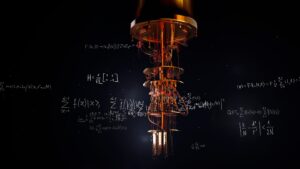Applications of Technology:
- Signal and image processing
- Integration of polynomial over multi-dimensional support
- Quantum machine learning
- Quantum sensing
- Constraint Satisfaction Problems and quantum optimization
- Domain-based simulations (physics, chemistry, etc.)
- Financial modeling
Benefits:
- Polynomial transformations using commercially-available quantum hardware
- Highly intuitive construction of quantum operator Short quantum circuits that scale well with problem size and polynomial degree
- Suitable for noisy quantum hardware due to low qubit count requirements
- Compatible with sequence encoding quantum algorithms allows for vectorized operations
Background: Quantum computing properties—such as massively parallel processing—allow for solving complex problems exponentially faster than classical computing. While existing quantum algorithms have demonstrated such potential, they are often highly specialized, challenging to execute efficiently on current quantum hardware. A new algorithm for computing generic polynomials compatible with commercially available quantum hardware and open-source software is introduced.
Technology Overview: Scientists at Berkeley Lab have developed the EHands algorithm, a constructive method for computing d-degree polynomials on a quantum computing unit (QPU). This algorithm encodes real values onto quantum states and utilizes four specific quantum operations: addition, multiplication, negation, and parity flip.
These 4 operations can be concatenated in arbitrary order to construct polynomial approximations of most functions. Some key features of this technology include:
- Computation of generic d-degree polynomial expressions using quantum circuits
- The use of short quantum circuits suitable for noisy, commercially-available quantum computers
- Demonstrated capability to computing polynomial approximation for functions like sin(x) and sigmoid(x)
- Demonstrated capability in computing Mean Square Error and polynomials on multiple variables
- A non-reversible approach, as well as a reversible-circuit approach for partial homomorphic computation
The EHands algorithm’s ability to efficiently compute polynomials on QPUs represents a promising step towards massively parallel, efficient, and open-source quantum computation. It has the potential to significantly enhance the efficiency of tasks involving transformations of higher-dimensional data, such as quantum optimization, machine learning, financial modeling, and scientific simulation.
Development Stage: Proven principle (TRL 3 – Analytical and experimental critical function and/or characteristic proof of concept).
Principal Investigators: Jan Balewski, Roel Van Beeumen
Additional Information: https://arxiv.org/abs/2502.15928
IP Status: Patent pending.
Opportunities: Available for licensing or collaborative research.
